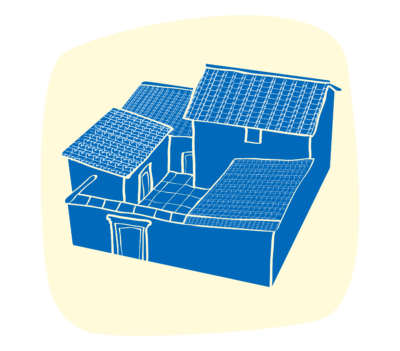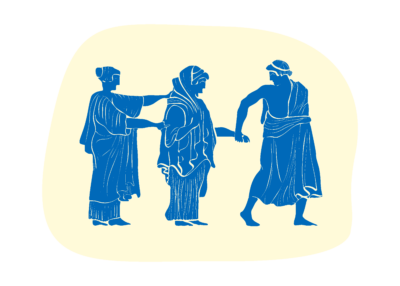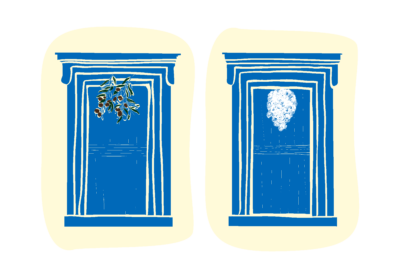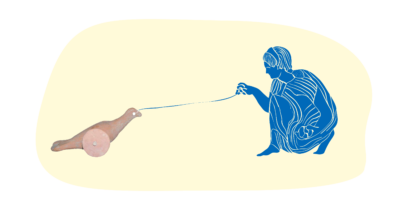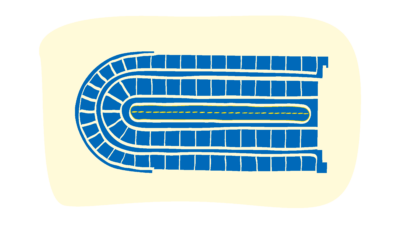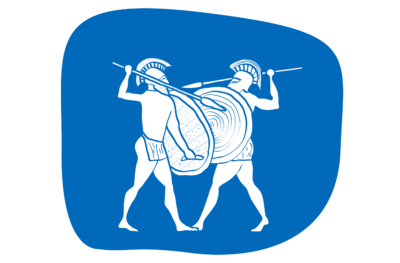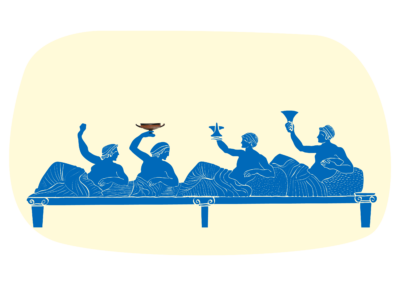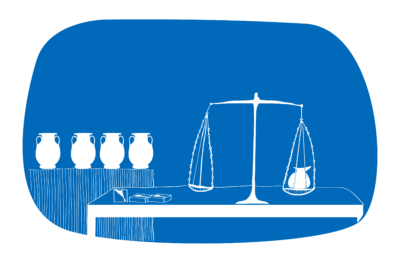Athletics
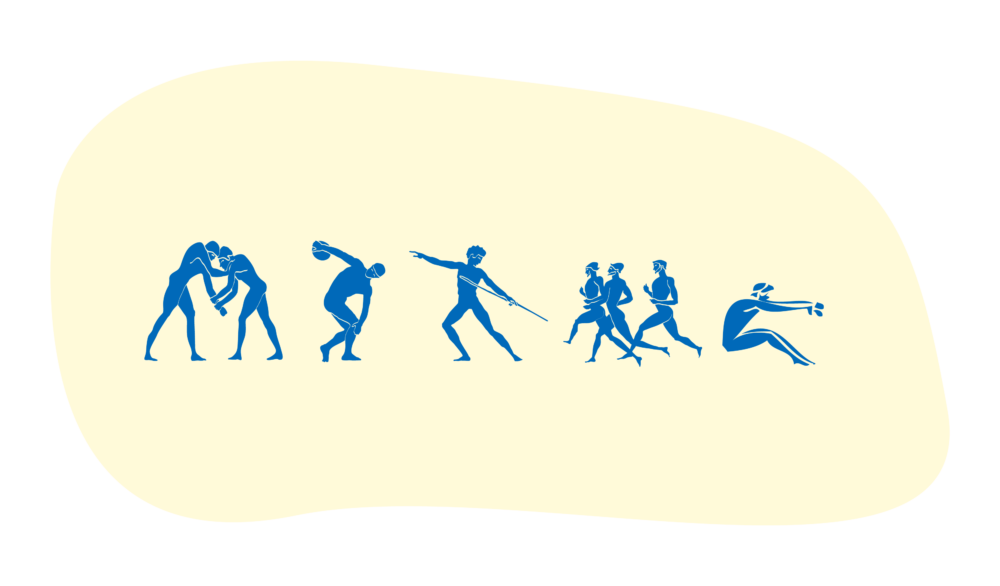
Young people exercised in the palaistrae (from the verb παλαίω = to exercise) naked, which is why the palaistrae were also called gymnasia.
At the palaestra
Since the times of Solon, physical education has been compulsory for boys and so every day we exercise in the wrestling gym (palaestra), named after the most important sport for the body’s development, wrestling (pali). Wrestling gyms, like music schools, are private. The gym teacher (pedotrivis), takes care of our training and is responsible for the strict observance of the rules of the various sports.
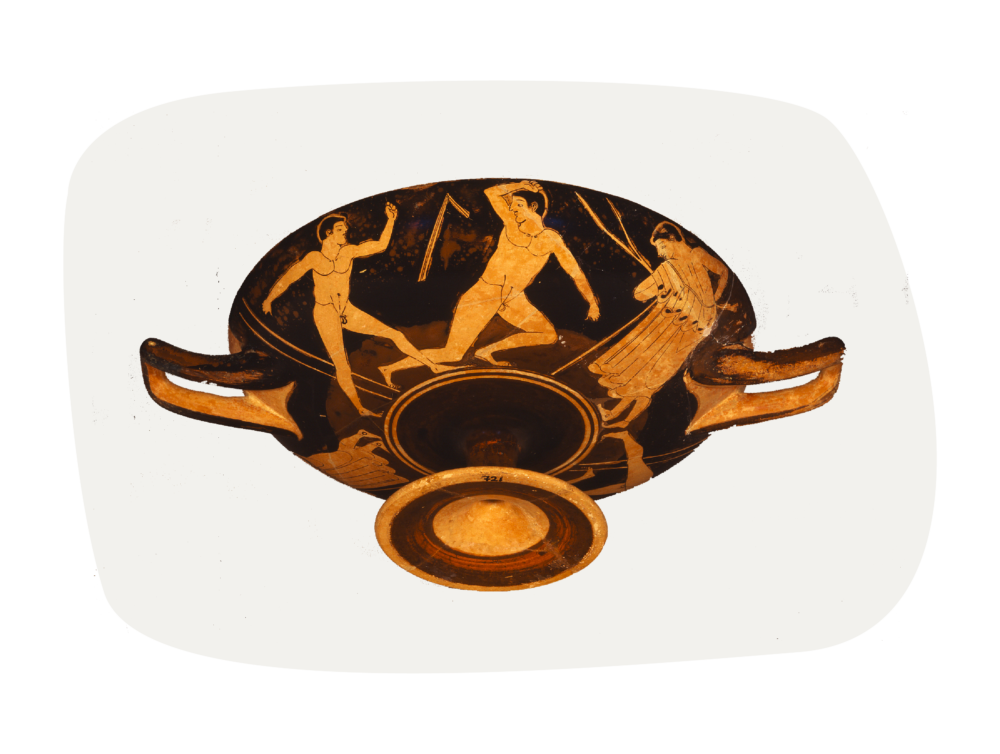
Pygmahia
In the palaestra, training in the long jump, the discus and the javelin is accompanied by the music of the double flute, which provides rhythm to our movements and helps us concentrate. The discus throw, the long jump and the javelin throw, along with wrestling and the stadion (a short foot race), which are held in the stadium, make up the pentathlon. Wrestling and the stadion are, of course, also independent sports.
The sport of pygmachia or pygmi (fist fighting) is also practiced in the area of the palaestra. Athletes in this sport cover their hands with leather straps.
Red Figure kylix with wrestlers. 5th century BC.

Body care
Athletes used to anoint their bodies with oil that they brought with them in small bottles called aryvalus. When they finished training, they used the stleggis
Bronze stleggis, a kind of scraper used by athletes for cleaning their body of oil and dust. 5th century BC.
GLOSSARY:
- Pyktikoi imantes (pl.): Leather straps, used by wrestlers to wrap their hands with during matches. Wrestling gloves.
- Strigil: Ancient bronze instrument used by athletes to scrape off dirt from the arena (palaestra).
- Aryballos: A small, spherical vase with a narrow spout, in which athletes kept the oil with which they anointed their bodies.
- Pedotrivis: Person responsible for the strict observance of the rules during the children’s exercise in the palaestra. Oftentimes the owner of the palaestra. Gym teacher.
- Palaestra: Sometimes a part of the gymnasium, a place for youth sports, and at other times an independent institution for the physical education of children from seven to eighteen years old. Originally, the palaestra was not a building but a square, which included a “pit,” a place dug out of soft earth, suitable for the sport of wrestling.

